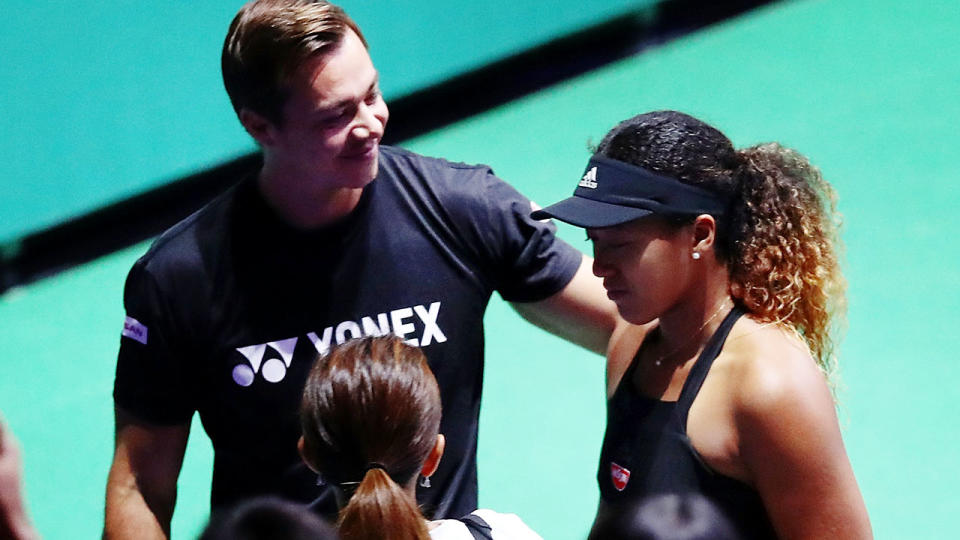'Taking too much credit': Conspiracy theories over Naomi Osaka bombshell
The tennis world is still at a loss to explain why Naomi Osaka would ditch her coach after he helped her win two grand slams and claim the World No.1 ranking.
However a number of theories are doing the rounds.
Sports Illustrated writer John Wertheim, who says he’s not that shocked by Osaka’s decision, has explained why a number of top players have parted ways with coaches after reaching the top.
Osaka’s bombshell comes after Angelique Kerber, Simona Halep and Sloane Stephens all hired new coaches after winning grand slams recently.
“During the rough patches…the coach is critical,” he says.
“Coaches provide support and emotional succour and work out kinks in the player’s game.

“In times of success, the player often wonders, ‘What do I need him for? I achieved this. I did the hard work. Now I am paying him this fat bonus. And he is taking credit?’
“Sometimes these moves are made for financial reasons. These bonuses are considerable and a renegotiating coach may overplay his hand.
“Sometimes players feel coaches are taking too much credit, conflating the player’s success with their own.
“But sometimes these moves are simply about timing the market. ‘Where’s he going to take me from here? Time to sell.'”

American great Chris Evert also suggested money might be the issue.
“It could be money,” she told Tennis Channel.
“One side might want more money and the other side’s not willing to pay it.
“It could be personality conflict or difference of opinion in training.”
Evert then appeared to take a slight dig at Osaka when discussing the trend with fellow legend Lindsay Davenport.
“In our day we were a lot more loyal,” she said.
“We realised nobody’s perfect.”